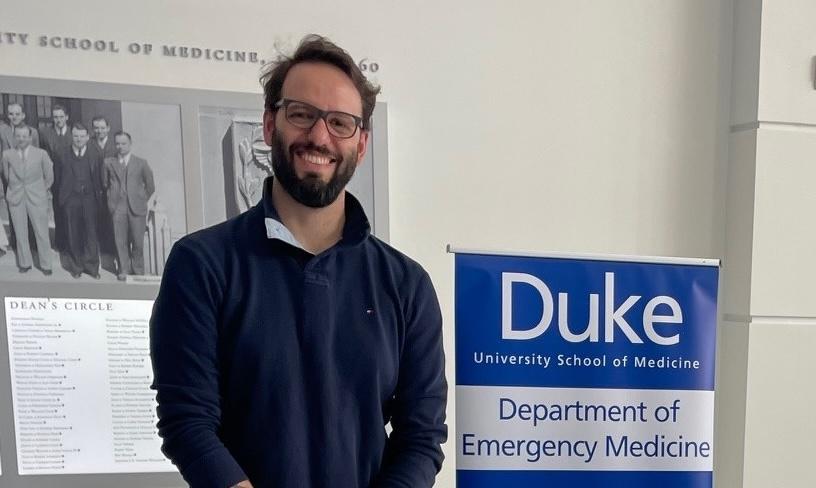A New Division in the Department

The Division of Translational Health Sciences (THS) is dedicated to transforming emergency healthcare through rigorous translational research. Our mission is to enhance patient and population-level outcomes by moving beyond the traditional “bench to bedside” model. We study a wide array of health determinants, and our strength lies in our diverse methodological backgrounds and expertise. All of that empowers us to collaborate effectively within and outside Duke’s Department of Emergency Medicine, applying discoveries to real-time care and informing policy decisions. Our Division is unique in that we are a team of faculty and staff dedicated to coupling our methodological expertise in rigorous study design from a translational research perspective, in service of advancing the research mission in partnership with clinical faculty. While we are not a core, (meaning we don’t provide services for a fee), we function as catalysts for providing rigorous design and analytical perspectives and facilitating the interaction with various methodological cores that do exist in the institution.
In our inaugural year as a Division, we sought to align our efforts in addressing key areas of interest from the Department of Emergency Medicine and the School of Medicine. The first example is the establishment of the Applied Science for Translational Research in Clinical Operations (ASTRO) research group. In partnership with Emergency Medicine Operations leaders Dr. Jason Theiling, Dr. Lauren Siewny, and Dr. Charles Gerardo, THS researchers, Dr. Joao Ricardo Nickenig Vissoci and Dr. Joao Vitor Perez de Souza, have spearheaded efforts to advance clinical operations. ASTRO leverages advanced analytics, data, and technology to improve efficiency and equity in emergency care.
THS has expanded research in building accessible systems of care. Dr. Joao Ricardo Nickenig Vissoci and Dr. Kiana Bess, in collaboration with EM faculty Dr. John David Purakal and Dr. Kendrick V. Kennedy, are developing strategies to promote equitable healthcare access and outcomes for all patient populations. This focus ensures that our innovations and interventions benefit the widest range of individuals and communities.
Our exploration into advanced data science includes innovative research on Large Language Models (LLMs). Recognizing the potential of LLMs to transform healthcare, Dr. Joao Vitor Perez de Souza and Dr. Joao Ricardo Nickenig Vissoci have secured seed funding to use LLMs in supporting emergency call responders in Brazil.
THS also addresses critical healthcare issues related to rehabilitation. In collaboration with EM faculty, THS researcher, Dr. Anna Tupetz is exploring innovative rehabilitation approaches that can be integrated into emergency healthcare settings, aiming to improve patient outcomes and quality of life. These efforts underscore our commitment to comprehensive patient care and our vision of transforming emergency healthcare.
In addition to these initiatives, Dr. Emily Smith’s research contributes significantly to our understanding of health equity work through the intersection of poverty, health economics, and pediatric care. As a THS researcher, Dr. Smith’s work focuses on children’s global surgery, health economics, and global health policy. Over the past year, she has developed key partnerships with St. Jude Research Hospital and Stanford University to research children’s cancer care in conflict zones and that paper has been submitted to Lancet Oncology. In addition, she has secured 3 seed funding grants to establish a study site for children’s cancer in Latin America with the St. Jude partnership. Lastly, she has been invited to present her work at the upcoming Clinton Global Initiative meeting and pitch a potential grant funding idea to the attendees (all of which are funders).
